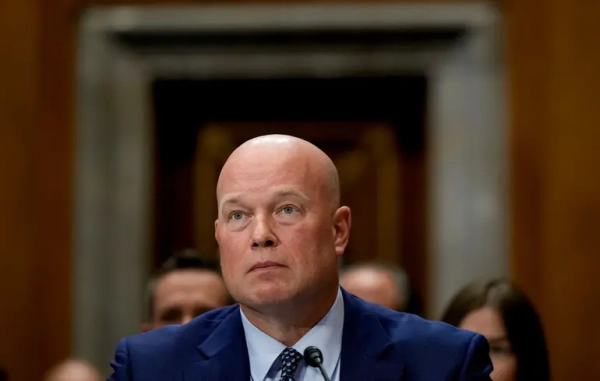In the next month or so, millions of GOP voters would need to rethink their loyalty to Trump and perhaps their life choices.

Republican presidential candidate and former UN Ambassador Nikki Haley delivers remarks at her primary night rally at the Grappone Conference Center on January 23, 2024, in Concord, New Hampshire. Joe Raedle/Getty Andrew Prokop is a senior politics correspondent at Vox, covering the White House, elections, and political scandals and investigations. He’s worked at Vox since the site’s launch in 2014, and before that, he worked as a research assistant at the New Yorker’s Washington, DC, bureau.
Nikki Haley congratulated Trump on his New Hampshire primary victory Tuesday — but she also said she wasn’t giving up on her campaign just yet, declaring, “This race is far from over.”
In the view of many pundits, it is essentially over.
But, technically, it isn’t. Just two small states — with a paltry share of the delegates that will determine the Republican nominee — have voted so far. Forty-eight states remain.
It is clear that Trump is a very strong favorite to win the nomination. It seems clear that, in losing New Hampshire, Haley missed what appeared to be her best shot to shake up the dynamics of the race. If polls of future states remain unchanged, Haley will get blown out in the next contests. It is hard to imagine how she turns things around.
If polls were enough, though, there would be no need to have elections at all. The media might think they know what’s going to happen. But it has not actually happened yet.
Haley can technically stay in as long as she wants; the question is whether she will. Candidates often claim they’re all in until the moment they’re not, and her road will grow even more difficult if the political world decides she has no shot. The risk is that donors cut off their money so that she can no longer pay staff, and outside groups no longer pay millions for ads on her behalf (as they did in New Hampshire).
If she stays in, it will likely be under the hope that, who knows, something totally crazy might happen to improve her chances between now and the February 24 South Carolina primary in her home state, where Haley trails recent polls by about 30 points.
Time will indisputably run out, though, on Super Tuesday. Once the March 5 contests are over, 47 percent of Republican delegates will be allocated. If Trump wins those contests by a wide margin, it will be functionally impossible to catch up to him. By then, enough of the voters will have spoken.
Two things are true: Haley’s chances are dwindling. And hardly anyone has voted yet.
Every Republican presidential nominee since 1980 has won either the Iowa caucuses or the New Hampshire primary. Haley won neither — Trump is the first GOP candidate in a contested race to win both.
There’s nothing magical about Iowa and New Hampshire, though. In 2020, Joe Biden placed fourth in the former and fifth in the latter — then he went on to romp to the nomination. Usually, the results from these states are a sort of bellwether indicating how the nation will vote. But there’s no law of nature guaranteeing that will always be the case.
The next state up is, technically, Nevada. But there is a strange situation there. The state is holding a primary on February 6, in which Haley is on the ballot but Trump is not. Then Nevada Republicans are holding a caucus on February 8, in which Trump is on the ballot but Haley is not. The caucus is the real contest that will allot delegates, but Haley isn’t even an option there. Her campaign made the strategic decision months ago to hope for good headlines from winning the primary instead.
So the next contested contest is in Haley’s home state of South Carolina on February 24. In theory, she has a home-state advantage there — but polls showing Trump in the lead suggest otherwise.
Realistically, then, Haley’s best hope is that something extremely wild happens in the month between now and the South Carolina primary on February 24 — something so dramatic that it makes Republicans across the country rethink their loyalty to Trump and perhaps their life choices overall.
Obviously, it is not at all likely that such a thing will happen, after eight years of GOP primary voters solidly standing behind him. (Haley urged Trump to debate her in her speech Tuesday night, clearly hoping that could be her way to take him down, but he hasn’t taken the bait of any such challenges so far.)
We all think we know where this is going. But we can wait another month or so to confirm whether voters agree.
Sourse: vox.com






